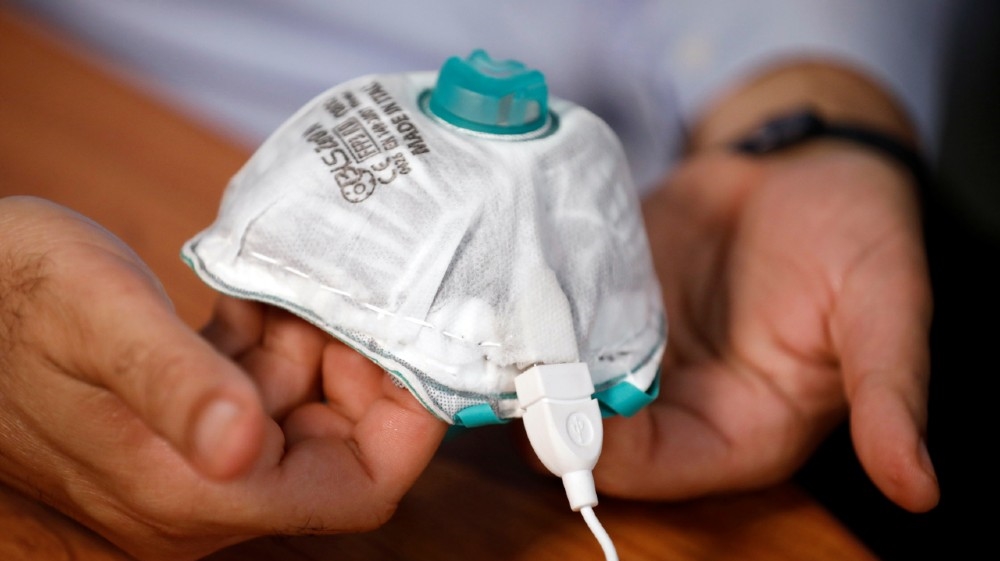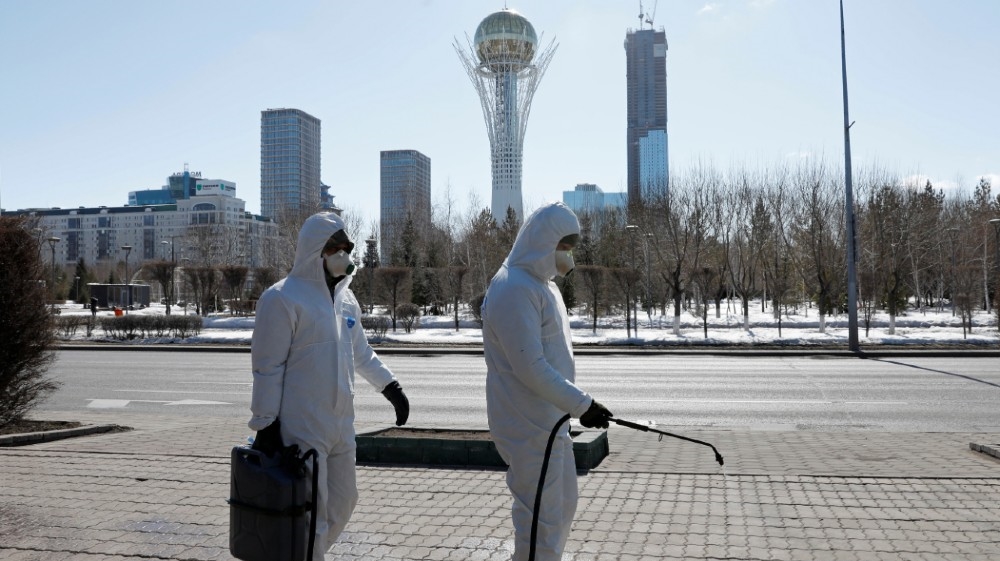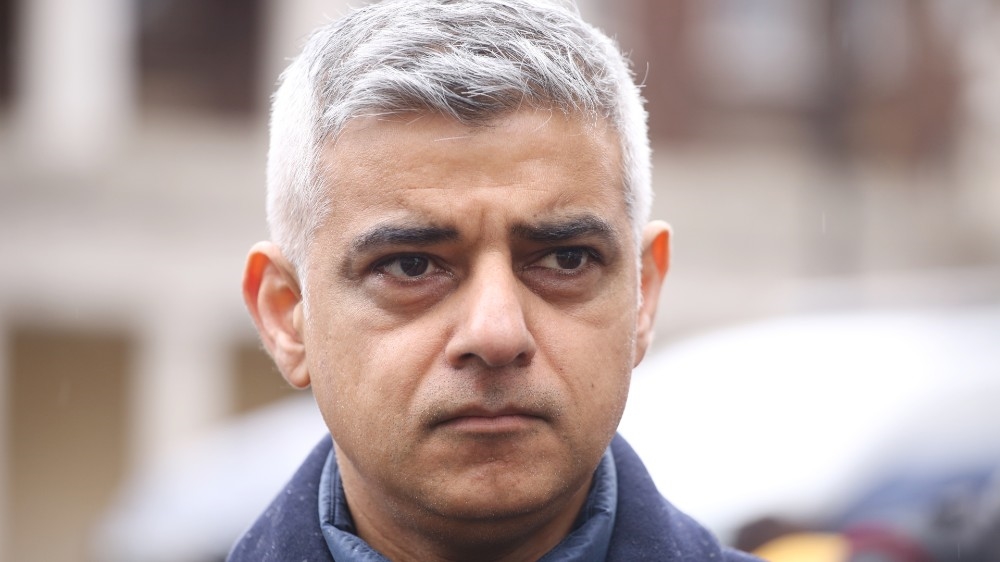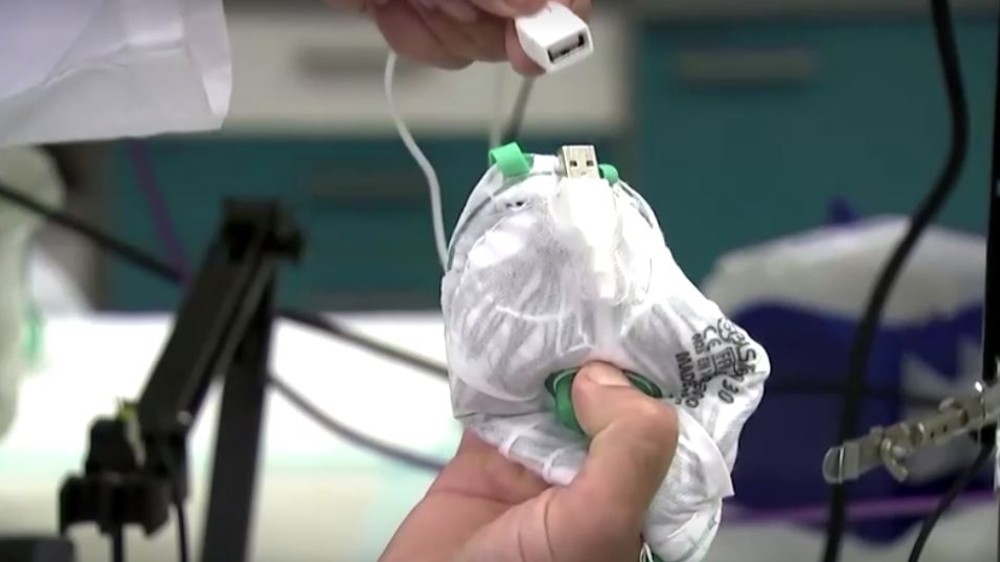WHO sees ‘green shoots of hope’ in coronavirus pandemic: Live
Despite cases still accelerating globally, WHO chief says steroid-based treatment holds promise in fight against virus.

-
India has registered 2,000 deaths in the last 24 hours taking the death toll from COVID-19 to 11,903. The number of infections surged to more than 354,000.
-
The WHO has welcomed as “great news” the findings of a University of Oxford study that found dexamethasone, a widely available steroid, helped save the lives of people with severe symptoms of COVID-19.
-
More than 8.1 million people have been confirmed to have the new coronavirus around the world. Nearly four million have recovered, while approaching 444,000 have died, according to data compiled by Johns Hopkins University. The United States has the most cases and deaths, followed by Brazil.
Here are the latest updates:
Wednesday, June 17
23:30 GMT – Facing coronavirus surge in Arizona, Navajos reimpose virus curfew
The Navajo Nation has reimposed 57-hour weekend curfews to protect citizens from a surge in coronavirus cases in neighbouring Arizona after the largest Native American reservation managed to flatten its own COVID-19 curve.
Keep reading
list of 4 itemsVirus drags down loan growth, asset quality at Hong Kong banks
Banking giant HSBC plans business overhaul after profits plunge
Coronavirus pandemic: Which politicians and celebs are affected?
A month ago the coronavirus was tearing through the nation, with daily cases spiking above 170 among a population of around 174,000. That gave the Navajo Nation, which straddles parts of Arizona, New Mexico and Utah, the highest per-capita infection rate in the country if it were a state.
In Arizona, with a population more than 41 times greater, daily cases plateaued around 500 in mid-May, leading Arizona Governor Doug Ducey to lift a stay-at-home order.
The tables have since turned, with Arizona recording a record 2,392 new cases while the Navajo Nation reported 39.
20:25 GMT – Chile tightens restricting measures in Santiago
Residents of Chile’s capital will be subjected to tighter measures as the country’s confirmed coronavirus cases exceeded 200,000.
Under the new severe restrictions, city’s residents will be allowed to leave their homes just twice a week, instead of five times, amid concerns that lockdowns of up to three months in some parts of the capital had not succeeded in stopping the spread.

19:33 GMT – UAE citizens can travel to ‘low-risk’ countries
Starting from next Tuesday, residents and citizens of the United Arab Emirates will be allowed to travel to countries deemed low-risk for catching the coronavirus.
Travellers must test negative for COVID-19 and must quarantine on their return to the UAE for up to 14 days, said Saif Al Dhaheri, spokesman for the National Emergency Crisis and Disaster Management Authority.
Airport authorities will check travellers for symptoms. Those with a fever or showing respiratory problems will be isolated and barred from travel, he said.
Travel to medium-risk countries would be allowed on a case-by-case basis.
18:55 GMT – Black patients in Atlanta more likely to be hospitalized: CDC
A new study published by the Centers for Disease Control and Prevention focusing on coronavirus patients in Atlanta, Georgia has found that black patients are more likely to be hospitalized than white patients.
According to the study – which looked across six metropolitan hospitals and outpatient clinics between March and April 2020 – about 79 percent of black patients were hospitalized against 13 percent of white patients.
Patients tended to be older, male, black, and with underlying conditions, said the researchers.
18:12 GMT – Countries latest figures:
France: 158,174 cases (+458), 29,575 deaths (+28)
Italy: 237,156 cases (+328), 34,448 deaths (+43)
Germany: 189,027 cases (+645), 8,918 deaths (+8)
UK: 299,251 cases (+1,115), 42,153 deaths (+184)
17:35 GMT – Portugal parliament approves amended budget
Portugal’s parliament approved in the first reading a supplementary budget that increases spending by 4.3 billion euros ($4.8 billion) to help the coronavirus-battered economy.
The draft includes 1.6 billion euros for a new furlough scheme, maintaining jobs and employment training, as well as tax discounts and delays for companies pursuing investments or particularly hard-hit by the crisis.
“We have truly faced exceptional times. This budget intends to respond to the impact of a health crisis which caused an unprecedented economic and social crisis,” Finance Minister Joao Leao, who took over on Monday after the resignation of Mario Centeno, told parliament.
The pandemic created an 8.7 billion-euro hole in public revenue, Leao said, after stating last week that the government expected a 6.3 percent deficit in 2020 and an increase of public debt to 134.4 percent of gross domestic product in 2020 from last year’s 117.7 percent.
16:49 GMT – New York marks record low in number of cases and deaths
New York city reported on Tuesday 17 new fatalities, a record low since the start of the coronavirus outbreak.
“We mourn those we lost,” NY Governor Andrew Cuomo said on Twitter. “But we are thankful this is the lowest number since the pandemic began.”
Yesterday there were 17 fatalities due to COVID. We mourn those we lost.
But we are thankful this is the lowest number since the pandemic began.
— Archive: Governor Andrew Cuomo (@NYGovCuomo) June 17, 2020
Cuomo also added that the city registered the lowest number of new infections which stood at 567 – less than one percent of the total.
Really good news on testing.
NY tested 59,341 people for COVID yesterday.
Only 567 tests came back positive — 0.96% of total.
That is a record low.
— Archive: Governor Andrew Cuomo (@NYGovCuomo) June 17, 2020
16:10 GMT – WHO sees “green shoots of hope”
While nations must continue to fight against the spread of the novel virus, the WHO’s Director General Tedros Adhanom Ghebreyesus said that there are “green shoots of hope” in the battle against the global pandemic.
Tedros also said it was “very welcome news” that the initial results of a clinical trial had shown that a cheap, common steroid known as dexamethasone can help save critically ill patients.
15:37 GMT – Researchers invent mask that kills virus
As researches in Israel were trying to find an alternative to disposable masks they invented a reusable face mask that can kill the coronavirus with heat by drawing power from a mobile phone charger.

The disinfecting process takes about 30 minutes – and users should not wear the mask while it is plugged in, said Professor Yair Ein-Eli, who led the research team at Technion University in Haifa.
The new mask has a USB port that connects to a power source such as a standard cellphone charger that heats an inner layer of carbon fibres to 70 degrees Celsius (158 Fahrenheit), high enough to kill viruses.
“You have to make it reusable and friendly, and this is our solution,” said Ein-Eli.
14:57 GMT – Germany bans large events until end of October
Germany will extend a ban of large events, including fairs, until at least the end of October due to the coronavirus pandemic, a document agreed by Chancellor Angela Merkel and the premiers of the 16 states showed.
14:15 GMT – Sweden to lift travel curbs to 10 EU countries
Sweden will lift its advice against non-essential travel to 10 European countries starting from June 30, said Foreign Minister Ann Linde.
The countries are Greece, Croatia, Spain, Italy, Portugal, Slovenia, France, Iceland, Belgium, Switzerland and Luxembourg.
“For other countries, the advice (against non-essential travel) still applies. Countries outside the EU and Schengen will be extended to August 31,” said Linde.
13:37 GMT – Coronavirus hits back Kazakhstan’s capital

A fresh wave of cases is spreading across Kazakhstan’s capital Nur-Sultan, according to authorities.
President Kassym-Jomart Tokayev said that the situation was “challenging” because of widespread non-compliance with social distancing rules, however, he added that the government remained in control.
The head of Nur-Sultan’s healthcare department Saule Kisikova said that since the situation had worsened over the last few weeks, more hospitals were being converted into COVID-19 facilities.
But doctors and other medical personnel are already stretched in the city of 1.2 million, she said, with more than 150 fresh cases reported daily for the last three days.
“If city dwellers continue behaving carelessly, there will not be enough doctors and hospital beds for everyone,” she said.
12:45 GMT – WHO moves to update COVID-19 guidance after ‘great news’ in drug study
The World Health Organization (WHO) plans to update its guidelines on treating people stricken with COVID-19, the highly infectious disease caused by the novel coronavirus, to reflect the results of a clinical trial that showed that a cheap, common steroid can help save critically ill patients.
Trial results announced on Tuesday by researchers in the United Kingdom showed dexamethasone cut death rates by about a third among the most severely ill COVID-19 patients admitted to hospital.
This is welcome news. I congratulate the Government of the #UnitedKingdom, @UniofOxford, the research groups, hospitals, patients and families who have collectively contributed to this lifesaving breakthrough. #COVID19 https://t.co/5ofV5LBtL5
— Tedros Adhanom Ghebreyesus (@DrTedros) June 17, 2020
12:25 GMT – DR Congo wants to help mining firms hit by coronavirus crisis
The Democratic Republic of the Congo will try to offer financial support to mining companies which need help due to disruptions caused by the coronavirus crisis, the mines minister has said.
The DRC is Africa’s top producer of copper and the world’s main source of cobalt, accounting for two-thirds of global supplies of the metal used in smartphones and electric car batteries.
“If there are cases of force majeure, the state may be able to dip into its pockets to try and help mining companies,” Willy Kitobo Samsoni said in a conference call.
12:10 GMT – COVID-19 deaths in Sweden pass 5,000
Deaths in Sweden from COVID-19 have passed 5,000, the Public Health Agency said, far more than in neighbouring Nordic countries.
The official death toll has now reached 5,041, up from 4,939 on Tuesday.
Sweden has taken a softer approach to fighting the coronavirus, leaving most schools, shops and restaurants open and relying on voluntary measures focused on social distancing and good hygiene.
The number of deaths in Sweden has been far higher relative to the size of the population than in Denmark, Norway and Finland, where authorities have taken a stricter approach. But they have been lower than in the UK, Italy and Spain, where there have also been lockdowns
11:45 GMT – Tunisia’s economy may shrink by 6-7 percent in 2020
Tunisia’s economy may shrink by up to 7 percent this year due to the effects of coronavirus pandemic, the investment minister has said.
The number of unemployed people in Tunisia will increase by 275,000, according to a government study in partnership with the United Nations Development Program, the minister, Slim Azzabi, said.
The study expects the economy to shrink by 4.4 percent but Azzabi said that figure might rise to as high as 6-7 percent.
11:25 GMT – English Premier League set to return after coronavirus break
The English Premier League is set to kick off behind closed doors and under strict restrictions exactly 100 days after its season was suspended due to the coronavirus pandemic.
Manchester City will host Arsenal after Aston Villa plays Sheffield United on Wednesday, but there will be no fans and stadiums are restricted to about 300 key people as the danger of the pandemic persists.
Read more here.

11:05 GMT – London mayor takes pay cut over virus funding cut fears
London’s mayor has announced he will take a 10 percent pay cut due to a budget crisis caused by the coronavirus outbreak, as he urged the government to help the UK’s stretched local authorities.
Sadiq Khan said the capital faces a budget shortfall of nearly 500 million pounds ($628m) over the next two years because of an “unprecedented” income loss from the crisis.
The Labour mayor warned he could make cuts to police, fire and transport services without additional funding from the government, which he accused of risking “a new era of austerity”.

10:40 GMT – Disagreement on WHO hindering UN Security Council conference: Report
Russia has said differences between other nations over the role of the World Health Organization (WHO) have delayed a video conference being organised between the permanent members of the United Nations Security Council (UNSC), the RIA news agency reported.
The conference aims to discuss the global response to the coronavirus pandemic, but members disagree on how to assess the role of the WHO in their conference communique, Russian Foreign Minister Sergei Lavrov said.
|
|
10:25 GMT – German government seeks ban on big events until at least end of October: Report
Chancellor Angela Merkel’s government is seeking to ban big events until at least the end of October over fears of renewed transmission of the coronavirus, according to an official draft seen by AFP.
Berlin also plans for schools to return to normal operations after the summer holidays, although recommendations for social distancing and mask-wearing in shops and on public transport will stay, according to the document to be discussed by Merkel and premiers of Germany’s 16 states on Wednesday.
10:16 GMT – Mink at Danish farm to be culled after catching coronavirus
Mink at a farm in Denmark were found to be infected with the new coronavirus and the whole stock would now be culled, the Danish Veterinary and Food Administration has said.
The outbreak among minks is the first in Denmark but comes shortly after 10 mink farms in the Netherlands were ordered culled after some animals tested positive for the disease.
09:55 GMT – EU proposes emergency leeway on gene engineering rules for coronavirus vaccines
The European Commission has proposed to temporarily relax rules on trials of drugs involving genetically engineered organisms as an emergency measure to speed up the development of a vaccine against the new coronavirus.
The proposal is part of a wider European Union strategy, which also includes investing about two billion euros ($2.3bn) for the advance purchase of vaccines under development, in a bid to secure enough doses for the bloc as it fears lagging behind the United States and China.
09:25 GMT – Germany’s CureVac to launch human trial of experimental coronavirus vaccine
Unlisted German biotech firm CureVac will become the second company to launch human trials of an experimental coronavirus vaccine in the country.
First meaningful results could be available in September or October, and approval could be on the cards under favourable conditions in the middle of next year, CureVac’s acting Chief Executive Officer Franz-Werner Haas has told an online media briefing.
|
|
09:20 GMT – Beijing says COVID-19 cases could stay at current levels for some time
Beijing cannot rule out the possibility that the number of COVID-19 cases in the city will stay at current levels for some time, a city official has said.
Pang Xinghuo, a senior official for the Beijing disease control authority, said the COVID-19 epidemic was still growing in the city.
Read more here.
|
|
09:15 GMT – Indonesia reports 1,031 new infections
Indonesia has reported 1,031 new coronavirus infections taking the total to 41,431 and overtaking Singapore with the highest number of COVID-19 cases in Southeast Asia.
Health ministry official Achmad Yurianto said 45 more deaths were reported on Wednesday, taking the total number of fatalities to 2,276. Indonesia has the highest coronavirus death toll in East Asia outside of China.
09:00 GMT – HSBC revives 35,000 job cut plan after pandemic pause
HSBC is resuming plans to cut about 35,000 jobs which it put on ice after the coronavirus outbreak, as Europe’s biggest bank grapples with the effects on its already falling profits.
It will also maintain a freeze on almost all external hiring, CEO Noel Quinn said in a memo sent to HSBC’s 235,000 staff worldwide as seen by Reuters News Agency.
“We could not pause the job losses indefinitely – it was always a question of ‘not if, but when’,” Quinn said, adding that the measures first announced in February were “even more necessary today”.
08:45 GMT – Beijing virus outbreak not connected to Norwegian salmon: Oslo
Chinese and Norwegian authorities have concluded that Norwegian salmon was likely not the source of the novel coronavirus that was found on cutting boards in a Beijing food market.
Following a meeting between Chinese and Norwegian officials on Tuesday, both countries have concluded that the source of the outbreak did not originate with fish from the Nordic country, Odd Emil Ingebrigtsen, the Norwegian fisheries and seafood minister said.
“We can clear away uncertainty and the halt in salmon export to China,” he told a video conference including journalists.
08:30 GMT – Self-cleaning mask can kill viruses with heat from phone charger, researchers say
Israeli researchers say they have invented a reusable face mask that can kill the coronavirus with heat by drawing power from a mobile phone charger.
The disinfecting process takes about 30 minutes – and users should not wear the mask while it is plugged in, said Professor Yair Ein-Eli, who led the research team at Technion University in Haifa.
The new mask has a USB port that connects to a power source such as a standard cellphone charger that heats an inner layer of carbon fibres to up to 70 degrees Celsius (158 degrees Fahrenheit), high enough to kill viruses.

08:15 GMT – German coronavirus tracing app downloaded 6.5 million times
Germany’s smartphone app to help trace coronavirus infections has been downloaded 6.5 million times in the first 24 hours since its launch, the CEO of software company SAP has said.
“It’s a big success, it scales, it’s user friendly and it helps society,” Christian Klein told journalists in a video briefing.
Germany joins European countries like Italy, Poland and Latvia in launching apps that use Bluetooth wireless to measure contacts between people and issue a warning should one of them later test positive for COVID-19.

08:00 GMT – Spain to honour its dead in July 16 ceremony
Spanish Prime Minister Pedro Sanchez has said a state ceremony will be held on July 16 to honour the more than 27,000 people who have died in the pandemic.
Speaking to legislators, Sanchez said the ceremony will be presided over by King Felipe VI, Spain’s head of state, and attended by top officials from the EU and the WHO.
|
|
07:50 GMT – Denmark urges protesters to get tested
The Danish government has urged participants in a large racial justice demonstration earlier this month to get tested after a person in the crowd tested positive for the coronavirus.
Health Minister Magnus Heunicke said 15,000 people attended the June 7 rally in downtown Copenhagen and “some of them stood very close to each other”.
He urged them to get tested “whether you have symptoms or not”. He said: “As long as we have the virus in Europe and in Denmark, it will flare up. We are dealing with a very, very contagious disease.”

07:35 GMT – Australian universities to hire plane for foreign students shut out by virus border closure
Two Australian universities plan to hire a plane to fly in hundreds of foreign students shut out in the middle of their studies by border closures due to COVID-19, a move they hope will start to salvage a major export earner.
The University of Canberra and The Australian National University, both based in the capital, said they plan to hire a plane to carry 350 students into the country in July so that they can complete quarantine then return to class.
The plan has the approval of the territory government but still needs the sign-off of the federal government, the universities said. The federal government closed national borders in March to prevent the spread of the coronavirus.
07:10 GMT – Post-lockdown jump in coronavirus cases rattles Turkish officials
Turkey may have to adopt a harder line on social interactions following a worrying jump in coronavirus infections.
This month restaurants and cafes reopened, intercity flights and car travel resumed and weekend stay-at-home orders were lifted. However, new COVID-19 cases have roughly doubled to 1,600 a day since June 1.
One senior government official called the new infections “a serious problem” and said steps may be taken after President Recep Tayyip Erdogan chairs a cabinet meeting this week.

06:55 GMT – Taiwan to ease virus border controls to let in some business people
Taiwan will from the start of next week ease border controls put in place to prevent the spread of the coronavirus and will allow in business travellers from some lower-risk countries, though they will have to be tested and quarantined.
Taiwan has never gone into total lockdown and life has continued largely as normal due to its early and effective prevention work and a first-rate public health system.
While it has largely lifted domestic restrictions, Taiwan has been more cautious about opening up its borders, which have been shut to most foreign visitors since mid-March.

06:40 GMT – UK inflation slides to 0.5 percent in May on virus lockdown
The annual inflation rate slid to 0.5 percent in May, remaining at a near four-year low as the country’s coronavirus lockdown dampened prices, official data showed.
The Consumer Prices Index (CPI) annual rate slumped last month from 0.8 percent in April, the Office for National Statistics said in a statement.
06:25 GMT – US scientist warns of coronavirus ‘surge’
Anthony Fauci, a leading member of the White House coronavirus task force, has urged US states including Arizona, Texas, and Florida to move aggressively to prevent recent increases in cases from turning into “a real surge”.
The director of the National Institute of Allergy and Infectious Diseases issued his call after US vice-president Mike Pence, head of the task force, played down the possibility of a “second wave” of COVID-19 cases, saying in a Wall Street Journal column that “such panic is overblown”.
“We are concerned about it but hopefully we can prevent individual blips we are seeing becoming a real surge,” he told the Financial Times. “The critical issue is how we handle and respond to the increases in cases.”
“All you need to do is look at the data, the facts, to see that the pandemic is not over by any means. The numbers speak for themselves,” said Fauci.
Hi, this is Elizabeth Melimopoulos in Doha taking over the live updates from my colleague Kate Mayberry in Kuala Lumpur.
05:50 GMT –
I am handing over the blog to my colleagues in Doha now.
A quick update on developments over the past few hours.
Beijing is battening down the hatches as it battled a coronavirus outbreak centred on its biggest wholesale food market. Other parts of China are imposing quarantines on recent arrivals from the capital. More politicians have been diagnosed with the virus – including the president of Honduras – and the WHO has welcomed the findings of a study using a widely-available steroid to treat COVID-19.
05:40 GMT – Another deadly day in Pakistan
Pakistan suffered its deadliest day of the coronavirus pandemic so far on Tuesday, recording 140 deaths from the disease, and taking the total number of fatalities to 3,037.
Cases and deaths continue to rise sharply, even as authorities rush to implement so-called “smart lockdowns” – defined areas of strict restrictions within major cities where the infection is spreading rapidly.
05:10 GMT – Australia borders likely to remain closed until 2021
Hold off on any travel plans, Australia says it expects its borders will remain closed until next year, although it might ease restrictions on students and other visitors who plan to stay for a longer period of time.
Trade minister Simon Birmingham says these visitors would probably be subjected to the same 14-day quarantine required of returning Australian citizens.
04:40 GMT – Honduran president says he has coronavirus
Honduran President Juan Orlando Hernandez says he has coronavirus and will work remotely while he receives treatment.
“As president of the nation, and a responsible citizen, I want to communicate that during the weekend I started to feel more discomfort and today I was diagnosed as having been infected with COVID-19,” he said in a televised speech.
“They have recommended I rest, but I will continue working remotely and through my aides.”
Hernandez wife and two of his aides have also been diagnosed with the disease. Honduras is one of only a few countries to maintain diplomatic ties with Taiwan, and Foreign Minister Joseph Wu tweeted his best wishes.
My thoughts & prayers are with @JuanOrlandoH & @anagarciacarias at this testing time. My good friend the President of #Honduras is a fighter & will come through this with flying colors. Be strong! JW https://t.co/b0z3H61k0g
— 外交部 Ministry of Foreign Affairs, ROC (Taiwan) 🇹🇼 (@MOFA_Taiwan) June 17, 2020
04:30 GMT – Red Cross warns violence puts Afghanistan COVID-19 patients at risk
The International Committee of the Red Cross (ICRC) says rising violence and attacks on healthcare facilities have put millions of people in Afghanistan at risk.
“The recent trajectory in Afghanistan is of great concern,” Juan Pedro Schaerer, the head of the ICRC delegation in Afghanistan, said in a statement. “After the hope brought by a relative reduction in hostilities in February and March, we again see more violence. Civilian casualties are on the rise while the country is battling against COVID-19.”
The Red Cross says Afghanistan’s health system was stretched even before the arrival of COVID-19, with limited coverage in conflict-affected areas, and poor specialised healthcare. Attacks against medical staff and health facilities, such as the assault last month on the MSF-supported maternity hospital in Kabul, only made the situation worse it said.
“COVID-19 has challenged the world’s most advanced nations. A country where gunmen attack a hospital stands no chance at providing quality care. We see it in health facilities in conflict-affected areas and in prisons, where people have already limited access to health care,” Schaerer said.
04:10 GMT – Speaker of Kazakh parliament tests positive for coronavirus
Nurlan Nigmatulin, the speaker of the lower house of Kazakhstan’s parliament, is the latest politician to test positive for coronavirus. He met the country’s healthcare minister, Yelzhan Birtanov, last week before Birtanob was diagnosed with COVID-19 and admitted to hospital with pneumonia.
The parliament’s press office says Nigmatulin’s case is asymptomatic.
We’ve been keeping track of the politicians and celebrities diagnosed with the disease, as well as what coronavirus does to people. Read more in the stories below.
03:15 GMT – Chinese provinces impose curbs, quarantines on people from Beijing
Provinces and cities elsewhere in China are responding to the outbreak of coronavirus in the capital.
The semi-autonomous Chinese territory of Macau has just announced a 14-day mandatory quarantine for all people who have been in Beijing in the past two weeks. The measure will come into effect at 12 noon local time (04:00 GMT).
Heilongjiang province in the northeast has introduced a 21-day quarantine for anyone recently arrived from Beijing’s medium and high-risk areas.
The capital has already imposed restrictions on outward travel. That’s led to a sharp drop in flights at its main airports.
500 flights carrying 32,000 passengers will fly into and out of #Beijing Capital International Airport on Wed, which is significantly less than last week, due to a rise in #COVID19 infections; that is, the airport (PEK) saw 901 flights carrying 82,700 passengers last Wed. https://t.co/l9EeIY2PIl
— Global Times (@globaltimesnews) June 17, 2020
02:45 GMT – Japan finds coronavirus in wastewater plants
A Japanese study has confirmed the presence of coronavirus in wastewater.
Researchers from Toyama Prefectural University, Kanazawa University and Kyoto University tested water at four treatment plants in western Japan and found seven of 27 samples positive for the virus, according to a preprint of the study.
“Sewage testing is used as an early warning system to alert people about (possibly unnoticed ongoing community transmission,” Yuki Furuse, a Kyoto University professor who wasn’t directly involved in the trial told Reuters.
Studies in Australia, the US and Europe have reported similar findings.
02:15 GMT – New Zealand deploys troops to borders after quarantine bungle
New Zealand’s prime minister, Jacinda Ardern, has appointed the military to oversee the country’s borders, after a quarantine bungle.
The country had had 24 days without new cases until Tuesday when two women who’d recently arrived from Britain were found to have the disease.
“My view is that we need the rigour, we need the confidence, we need the discipline that the military can provide,” Ardern told reporters, according to AFP news agency.
01:50 GMT – Beijing reports 31 new coronavirus cases
Beijing confirmed 31 new cases of coronavirus on June 16, as coronavirus restrictions were tightened across the capital.
The new cases are part of a cluster that originated in the sprawling Xinfadi wholesale food market in the southwest of Beijing. An area around the market has been designated a high-risk zone and quarantined. Other districts have been designated medium-risk with people there required to undergo temperature checks and registration.
|
|
00:00 GMT – Brazil cases at daily record, official claims crisis ‘managed’
Brazil has reported a record 34,918 new coronavirus cases, on the same day one of the senior officials leading the country’s response to the crisis claimed the outbreak was under control.
Brazil also registered 1,282 COVID-19 deaths bringing confirmed fatalities to 45,241.
Walter Braga Netto, the head of the office of the president’s chief of staff and one of the top officials handling the crisis, said it was under control.
“There is a crisis, we sympathise with bereaved families, but it is managed,” Braga Netto told a webinar organised by the Commercial Association of Rio de Janeiro.
|
|
Braga Netto based his claim on deaths-per-million-people, which suggested the country was doing better than many European nations, saying he “was trying to convey a message of optimism in the management of the crisis”.
But Carissa Etienne, who is the director of the Pan American Health Organization (PAHO) said in a video briefing from Washington that Brazil is a major concern.
“We are not seeing transmission slowing down” in Brazil, Etienne said.
Latin America’s largest country accounts for about a quarter of the roughly four million coronavirus cases in the Americas and nearly 25 percent of the deaths, she said.
23:30 GMT – WHO welcomes study findings on steroid treatment
The WHO has welcomed the findings of a “breakthrough” study on steroid treatment for people suffering from severe cases of COVID-19.
“This is the first treatment to be shown to reduce mortality in patients with COVID-19 requiring oxygen or ventilator support,” Tedros Adhanom Ghebreyesus, WHO director-general, said in a statement. “This is great news.”
The researchers shared initial insights about the results of the trial with WHO, which will update its clinical guidance on how and when the drug should be used in COVID-19 after receiving more detailed information.
Dexamethasone is a steroid that has been used since the 1960s to reduce inflammation in a range of conditions, including inflammatory disorders and certain cancers.
—-
Hello and welcome to Al Jazeera’s continuing coverage of the coronavirus pandemic. I’m Kate Mayberry in Kuala Lumpur.
Read all the updates from yesterday (June 16) here.
WHO sees “green shoots” of hope in COVID-19 pandemic
While nations must continue to prevent the spread of the novel virus, the WHO’s Director General Tedros Adhanom Ghebreyesus said that there are “green shoots of hope” in the battle against the global pandemic.
Tedros also said it was “very welcome news” that the initial results of a clinical trial had shown that a cheap, common steroid known as dexamethasone can help save critically ill patients.